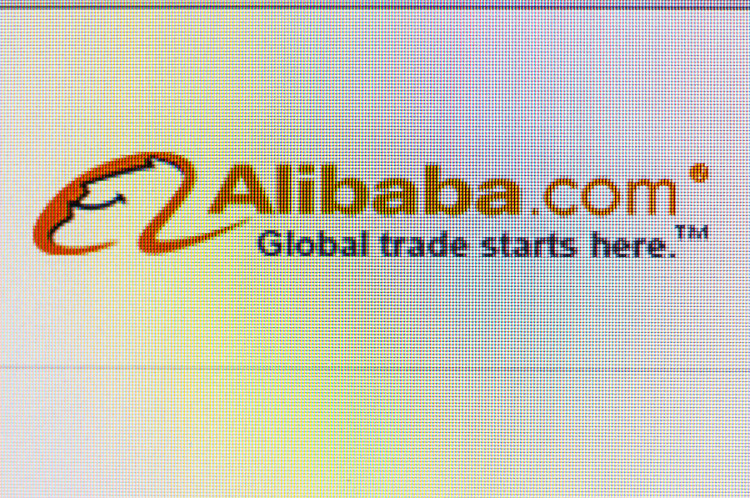Why Alibaba Is the Canary in China’s Coal Mine: William Pesek

©2015 Bloomberg View
NU0QG96JTSEC
(Bloomberg View) — It turns out investors were right about Alibaba: No company is more on the front lines of China’s economic shifts than Jack Ma’s juggernaut. And that’s just where the problems begin.
Alibaba’s shares slide with each new report of middle-class Chinese who are dumping apartments to raise cash, delaying weddings, canceling vacations, terminating automobile orders and cutting up credit cards. A social media app called “Guide on Safe Passage Through the Economic Crisis” is all the rage as hundreds of millions of mainlanders encounter their first bear market. All that most Chinese younger than 50 know is annual growth of more than 10 percent. Crashing stocks and recession are Western maladies, not China’s.
Ma has hitched the fortunes of his e-commerce behemoth to these people, and the value of his company is falling in sync with them. After surging as much as 75 percent from their initial offering price of $68 each last September, the company’s American depositary receipts plunged 16 percent in August, to $66.12, the third consecutive monthly decline in New York. Anyone who doubts that China won’t experience a negative wealth effect as Shanghai cracks hasn’t looked at Alibaba’s numbers. Skeptical investors have shaved $65 billion from its market value since last year’s euphoric initial public offering.
Things are about to get worse — both for the economy and Ma’s investors. Five interest-rate cuts since November aren’t boosting factory activity, which is the weakest in at least three years. The 49.7 reading on the August Purchasing Managers’ Index confirmed the worst fears of China bulls: Domestic and external demand is sliding with the Shanghai Composite Index.
The conventional wisdom is that, for all the angst over stocks, few mainlanders own them. But this view assumes rationality in a wholly irrational setting. Pundits said the same about Americans in the late 1990s. But the so-called wealth effect from a surging Dow Jones industrial average significantly buttressed household sentiment. Confidence plummeted when the tech-stock bubble burst.
This dynamic could be doubly true of China. After months of putting the entire weight of the government behind saving the market, Beijing appears to have given up. The fallout from that realization will have unpredictable effects on 1.3 billion people indoctrinated to believe Beijing can control any crisis or narrative. As markets swoon and gross domestic product slides, consumers are delaying nonessential purchases. Baby diapers and groceries, yes; a new smartphone, handbag or movie tickets, no. Mass austerity has only just begun.
Policy makers are bracing for the fallout. In a July report, UBS economist Wang Tao said it would be interesting to see how the government responds to “large and widespread investment losses that could lead to a notable negative wealth effect which could weaken consumption, as well as grievances against the authorities.” Since then, we’ve learned how: directing banks to buy shares, turning off half the market, loosening curbs on margin trading, suspending IPOs, letting stock speculators put up houses as collateral. You can call it a powerful government effort to stabilize markets, or what it really is: desperation.
But as September begins, it was all for naught, psychologically speaking. “Risks are biased towards downside despite policy efforts,” Tao said yesterday.
China is skilled at scrubbing phrases like “Tiananmen Square” and “Tianjin explosion” from Internet and chat apps, but there’s no hiding the stock crash, especially considering a government campaign, started in August 2014, that encouraged the masses to buy shares. President Xi Jinping’s team figured an equities rally would help companies reduce debt loads. What it got instead was a lesson in the evils of asset bubbles and the folly of trying to manage them. As more and more mainlanders sense that the economy’s troubles are beyond Xi’s team and that Beijing is no match for Shanghai, sentiment is sure to plunge.
The same goes for neighboring economies. Macau’s GDP plummeted 26.4 percent last quarter as Chinese gamblers stayed home. South Korean exports tumbled 14.7 percent in August, the most since 2009, while Morgan Stanley downgraded its forecast for 2015 Japanese growth to an anemic 0.5 percent from 1 percent. Reserve Bank of Australia Governor Glenn Stevens yesterday warned of downside risks “associated with developments in China.”
Asia could do worse than keep an eye on Alibaba, whose $166 billion market capitalization tops the annual output of many countries. Ma could almost buy Vietnam or New Zealand. Until now, investors reveled in Alibaba’s scale and breadth — a Chinese amalgam of Amazon, PayPal, eBay, brokerage services, travel agencies and real estate operations. By creating a one- stop shop for 650 million mainland Internet users, extending into virtually every industry imaginable, Ma created a better quarterly GDP report than Beijing. And at the moment, it’s flashing warning signs.
This column does not necessarily reflect the opinion of the editorial board or Bloomberg LP and its owners.
To contact the author of this story: William Pesek at wpesek@bloomberg.net To contact the editor responsible for this story: Daniel Niemi at dniemi1@bloomberg.net
For more columns from Bloomberg View, visit http://www.bloomberg.com/view







No Comment